I am trying to profoundly understand Template Argument Deduction.
One point I am not understanding is, how I should apply the rules in the standard
here for the types A and P
for the following case (there is sadly no example on cppreference.com, see below the relevant section)
template<typename T>
void foo(T t);
void call_with_reference(int& r) {
foo(r)
}
Pis no reference typ:
which givesP := TA := int&
-> Match P and A which gives: T is deduced to int&
which is cleary wrong. Where is the rule in the standard that says references from A are removed? A non-confusing, unambiguous clear answer would be very much appreciated.
